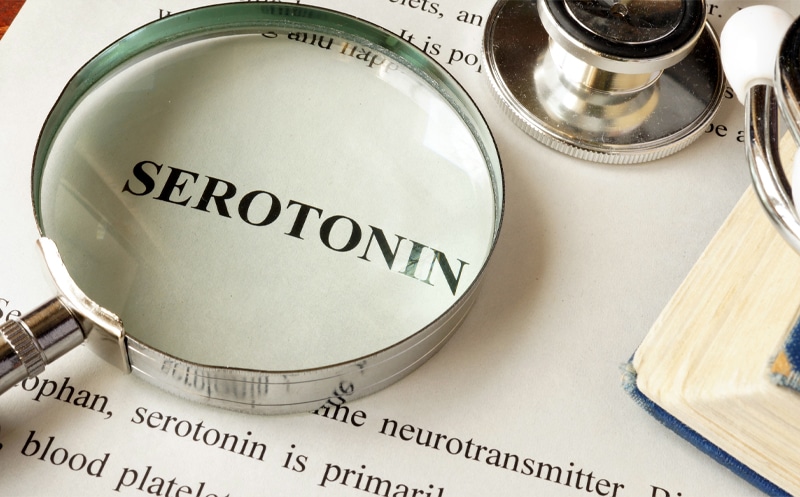Stress is commonly referred to as the “silent killer” nowadays, and for a good reason – from many points of view, stress is deadlier than cardiovascular disease, diabetes, and other potentially fatal diseases. If left untreated over an extended period, stress can take its toll on your emotional, physical, and mental well-being; this is why it is essential to relax and let off some steam regularly. While it is true that over-the-counter medications can alleviate stress to a certain extent, some natural approaches and treatments have the same effect. They stimulate the natural production of cortisol, a hormone produced by the adrenal glands responsible for managing stress. Stress causes a host of medical problems, including high blood pressure, heart palpitations, anxiety, and depression. Learn some stress management techniques to help you identify, cope, and prevent stress.
Identifying Stress

Step 1: Write down what you believe caused your stress to increase. (If unsure of the cause, make a guess and write it down.)
Step 2: Write down a description of how you felt emotionally and physically at the beginning of the day, the middle of the day, and the end of the day.
Step 3: Write out any responses you took to the stressful situation. For example, did you have an emotional outburst or remain silent and stew on the problem?
Step 4: Write down anything you did to make yourself feel better. Did you eat, take a nap, or enjoy a hobby? Did you engage in any unhealthy habits? Avoid unhealthy coping mechanisms such as smoking, overeating, withdrawing, procrastinating, lashing out, or drinking too much.
Learn to Cope with Stress
Coping with life’s stresses is vital to a healthy, happy, and productive life. Stress management involves learning new coping mechanisms. When it comes to dealing with anxiety, you can either change the situation or change how you react to it.
Coping skills may include activities you enjoy, such as spending an afternoon with a friend, engaging in creative activities, attending church, or participating in your favorite hobbies. Other options may include discussing your stress with a close family member or friend, meditation, yoga, and counseling.
Techniques to Manage Stress
Life, in general, is stressful. Here are some stress management techniques you can use to limit stress.
Reduce Responsibilities
Learning to say no and paring down one’s 
Avoid Stressful People
If certain people cause excess stress or things that stress you, remove them from your life. For example, if you have a friend who is always negative, spend less time with them to help you enjoy life more.
Be Positive
Try to find the bright side of any situation. For instance, instead of stressing out about grocery shopping, be thankful that you have a family to feed and money to buy food. Adjusting your thought process can turn almost any negative situation into a positive one.
Herbal Remedies
People have harvested the power of herbs and roots for thousands of years. One group of herbs is known as adaptogens, which aim to regulate the most critical bodily processes naturally. Siberian ginseng, for instance, is known for naturally lowering hypertension and preventing stress from damaging the adrenal gland. Vitamin C plays a pivotal role in the correct functioning of the immune system. One of the many dangerous effects of stress on the body is depleting the body’s Vitamin C supply.
Music Therapy
Also known as “melotherapy,” music therapy helps millions of people worldwide to alleviate the symptoms of stress. Studies have revealed that some music genres, such as classical music, can improve your mood and stimulate the natural production of serotonin and dopamine in the brain (the “Happy Hormones”), thus helping you ward off stress. Nature sounds are equally beneficial, as they induce a feeling of serenity and relaxation – this is why mesotherapy is an integral part of a more comprehensive mind-body therapy (usually includes yoga and aromatherapy).
Physical Exercises
Physical exercise can benefit your body on many different levels. These exercises help you shed extra weight and stay fit, but they can also help you lower your blood pressure and cholesterol levels and address stress efficiently and without side effects. Physical activity can also relieve anxiety and depression, and the secret lies in the increased levels of norepinephrine experienced by physically active people. This naturally occurring chemical in the human brain is essential for long-term stress management.
Acupuncture And Acupressure

To sum up, there are numerous natural stress management techniques, some more efficient than others. By learning the aforementioned stress management tips, you can feel great and eliminate anxiety from your life. These techniques can also help you get sound sleep, rejuvenate, and stay happy and healthy.























